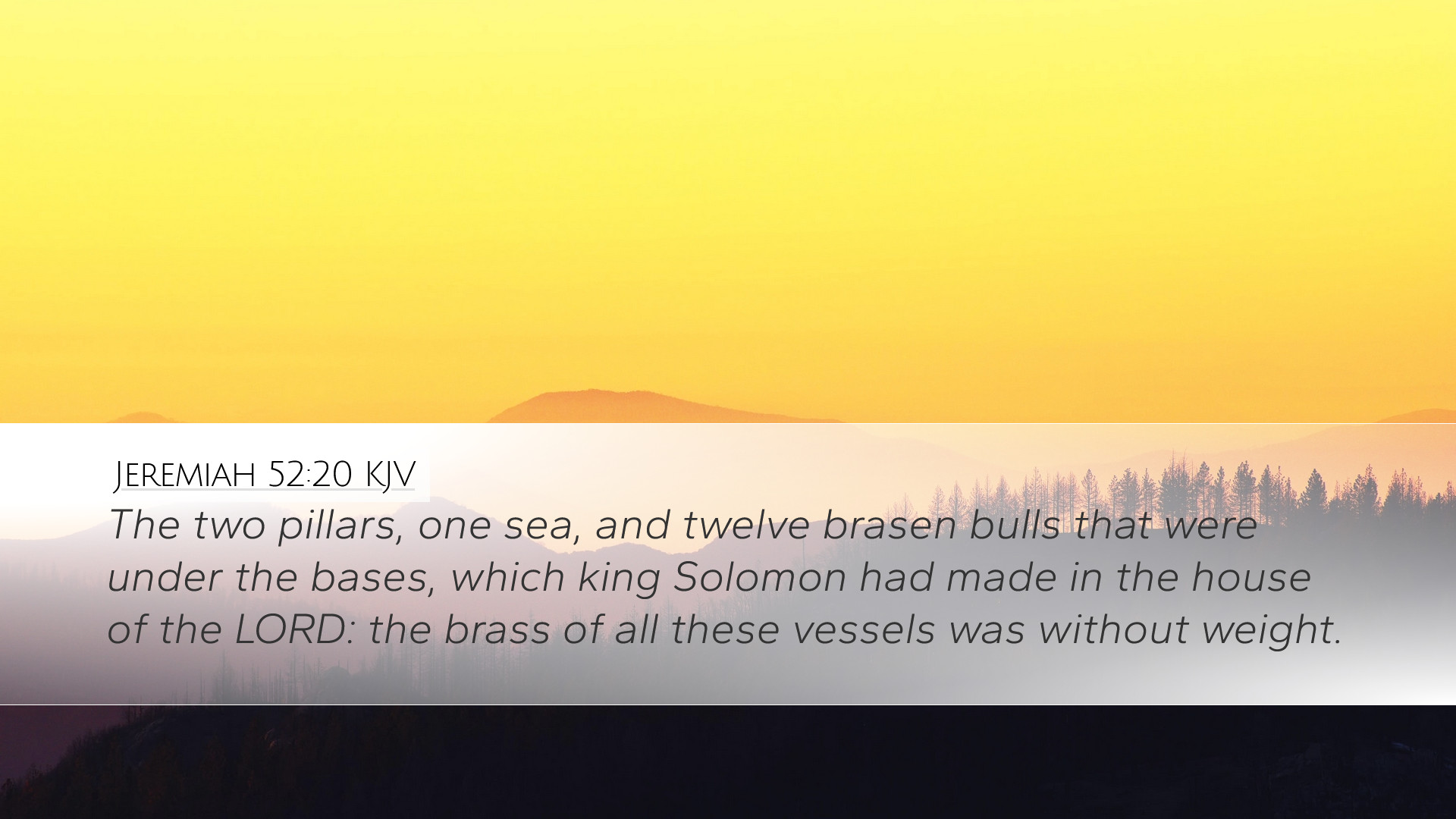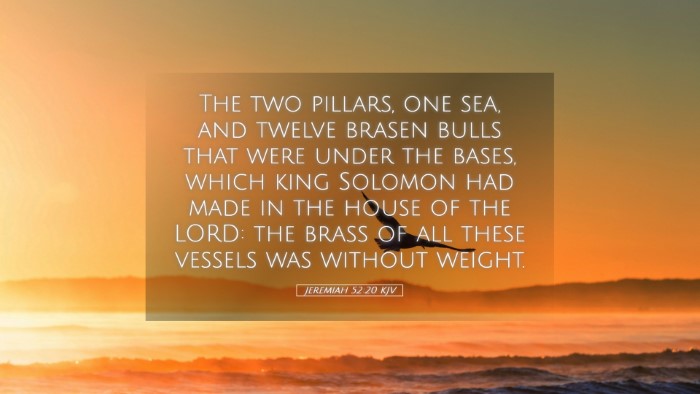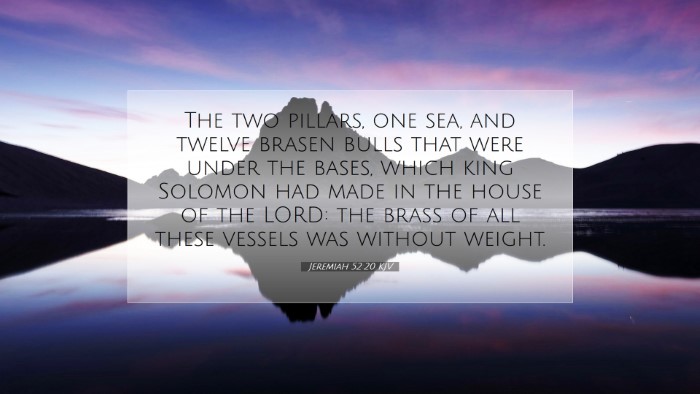Commentary on Jeremiah 52:20
Verse Reference: Jeremiah 52:20 - "The two pillars, the one sea, and the twelve brasen bulls that were under the bases, which king Solomon had made in the house of the LORD: the brass of all these vessels was without weight."
Introduction
The account in Jeremiah 52:20 details the dismantling of the sacred vessels from Solomon’s temple during the Babylonian conquest. This passage holds significant theological and historical implications. It serves as a testament to the devastating consequences of Israel's disobedience to God, yet it also underscores the enduring sovereignty of God even amidst calamity.
Exegesis of the Passage
The verse highlights specific items that were of monumental significance in the ancient Jewish worship system. The two pillars named Jachin and Boaz stood as symbols of strength and stability, while the sea and the twelve brazen bulls represent the provision and protection God offered to His people.
Historical Context
This event marks the culmination of God’s judgment against the kingdom of Judah for their unfaithfulness, which was prophesied through Jeremiah and other prophets. The religious and political idolatry of the people prompted God to allow their enemies to conquer them. Matthew Henry notes that the destruction of these sacred items symbolizes the removal of divine protection over Israel.
Theological Significance
Albert Barnes emphasizes that while the physical structures symbolize God’s presence, their fall signifies the departure of that presence due to Israel’s sin. A deep reminder lies in these events; God’s glory can withdraw when His people turn away from Him. This withdrawal is not merely a loss of favor but represents the severance of a covenant relationship.
The Pillars
The pillars, named Jachin (“He shall establish”) and Boaz (“In it is strength”), represented a profound declaration of faith and reliance on the Lord. Their destruction indicated that the assurance of God’s establishment and strength had been forsaken by the people through their idolatry and rebellion.
The Sea and the Bulls
The molten sea was used for the priests to wash themselves, a symbol of purification and sanctification, critical themes throughout the Hebrew Scriptures. The twelve bulls beneath it represented the twelve tribes of Israel, underscoring the unity of the nation under God's command. Clarke notes that their removal illustrates how Israel’s unity has been shattered alongside their spiritual integrity.
Lessons for Today
From this passage, several lessons can be drawn for contemporary believers:
- The Danger of Apostasy: The sad fate of the temple's glory serves as a reminder of the seriousness of turning away from God.
- The Weight of Consequences: The phrase "the brass of all these vessels was without weight" elucidates the concept that when one strays from divine principles, even the most valuable aspects of life become insignificant.
- God's Sovereignty: Despite judgment, God remains in control. The fall of the temple items demonstrates that His purpose cannot be thwarted, highlighting the promise of restoration that follows judgment.
Concluding Thoughts
Jeremiah 52:20 is not just an isolated historical fact but a narrative deeply embedded in the fabric of biblical theology. It demonstrates that God's purposes, though sometimes hidden through apparent disaster, ultimately aim for the redemption and restoration of His people. As pastors, students, theologians, and Bible scholars reflect on this passage, it serves as a poignant reminder of God’s holiness, the seriousness of sin, and the hope of reconciliation that follows true repentance.


